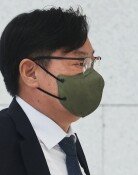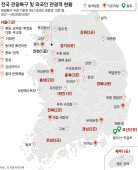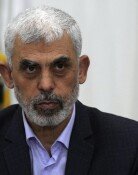Tokyo Expected to Grow Friendlier Toward Seoul
Tokyo Expected to Grow Friendlier Toward Seoul
Posted September. 04, 2009 09:02,
With the change in power in Japan, the Japan-Korea Parliamentarian Union, the largest official diplomatic channel among lawmakers of the two countries, is expected to undergo reorganization.
Before Japans general elections Sunday, the union comprised 302 lawmakers including 230 members of the House of Representatives and 72 members of the House of Councilors. The 203 House members consisted of 171 members of the Liberal Democratic Party and 37 of the Democratic Party of Japan.
As the number of seats taken by the Democratic Party exceeds that of its rival, the new ruling partys presence will soar in the union.
Traditionally, the unions chairman has been a prime minister-level lawmaker of the ruling party. Former Japanese Prime Minister Yoshiro Mori heads the union. The Korea-Japan Parliamentarian Union, Koreas counterpart of the union, is headed by Grand National Partys Lee Sang-deuk, the elder brother of President Lee Myung-bak.
The unions eight advisers include Democratic Party leader Yukio Hatoyama and 11 vice chairmen include incumbent Prime Minister Taro Aso. The Japan-Korea Parliamentarian Union is a large-scale organization having a secretary-general, vice secretary-generals and chiefs of standing committees in several sectors. Many senior members who had been reelected several times lost over the weekend.
The union is likely to replace Mori with a Democratic Party lawmaker, but the party lacks a prime minister-level lawmaker.
If the union is dominated by the Democratic Party, its diplomatic patterns will change. Generally, the party is friendly to Korea since it has long put an emphasis on bilateral relations. Compared to the Liberal Democratic Party, which has long formed close ties with Korea, the Democratic Party appears to lack notable figures with close Korea ties. More Democratic Party members, however, have studied bilateral issues and made much effort to improve ties.
The Democratic Partys four most influential people including leader Hatoyama, Ichiro Ozawa, Naoto Kan and Katsuya Okada are friendly to Korea. Okada has maintained friendly relations with Chung Dong-young of Koreas Democratic Party.
Union adviser Hatoyama is also giving advice to the Gathering of Lawmakers Supporting Strategic Japan-Korea Relations launched in March. Consisting of 15 lawmakers, the group is led by former Democratic Party leader Seiji Maehara.
They invited Kwon Cheol-hyeon, Korean ambassador to Japan, to the inaugural meeting and talked about desirable relations between the two countries. Seven of nine Democratic Party lawmakers who accompanied Hatoyama to Korea in June belong to the gathering. They are expected to create major diplomatic channels dealing with Seoul.
In 2003, Hatoyama established a bilateral parliamentarian exchange committee in 2003 to promote friendship between Korean lawmakers and the Democratic Party of Japan. He has played a critical role as a Japanese lawmaker friendly to Seoul.
In February last year, 19 Democratic Party members established the Korean Peninsula Research Institute to handle the Norths kidnapping of Japanese nationals and missile and nuclear programs and normalize Japans relations with North Korea via flexible approaches. The center is led by Tetsundo Iwakuni, who was a member of the House of Representative last year,
In cooperation with the Liberal Democratic Party, members of the gathering attempted to visit the North last year but failed.
jkmas@donga.com
Headline News
- N. Korea redefines S. Korea as ‘hostile state’ in revised constitution
- Samsung develops graphic DRAM with industry-leading capacity and speed
- Three questions allegedly leaked via text message during Yonsei Univ. essay test
- China to inject 340 trillion won in loans to support real estate sector
- Dodgers beat Mets to take 2-1 lead in NLCS







